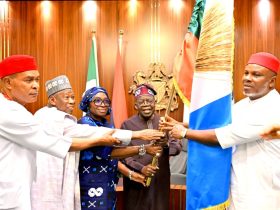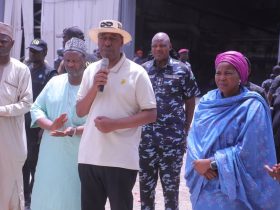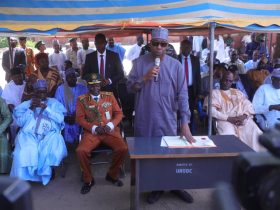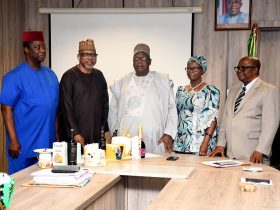The Association of Community Pharmacists of Nigeria (ACPN) has called on President Bola Ahmed Tinubu to urgently address what it describes as entrenched marginalisation of non-physician health professionals across the country’s education and health sectors. In a public memorandum signed by its National Chairman, Pharm. Ambrose Igwekamma Ezeh, the association accused the Federal Government of consistently yielding to the pressure of physician-led groups such as the Nigerian Medical Association (NMA), the Medical and Dental Consultants Association of Nigeria (MDCAN), and the National Association of Resident Doctors (NARD).
The ACPN cited ongoing disputes at the University of Calabar (UNICAL), where medical lecturers reportedly withdrew their services over the Vice-Chancellorship selection process. A similar incident was referenced at Nnamdi Azikiwe University (UNIZIK), where a previously concluded appointment of a Vice-Chancellor was allegedly reversed under pressure from physician groups, with the involvement of the Ministry of Education led by Minister of State, Dr. Tunji Alausa—a medical doctor. According to the ACPN, such interference contravenes regulations of the National Universities Commission (NUC), which mandate a Ph.D. as a prerequisite for Vice-Chancellor positions—an academic qualification many physicians reportedly lack, having pursued clinical fellowships instead.
Describing the situation as a sustained pattern of institutional bias, the ACPN accused the government of enabling physician dominance in leadership positions within federal health institutions, including appointments of Chief Medical Directors, Provosts of Colleges of Medicine, and heads of health-focused universities. The association alleged that non-physician professionals are systematically denied fair access to top roles, professional recognition, and equitable remuneration.
The memorandum highlighted disparities in earnings within the health sector, claiming that physician-lecturers who also serve as hospital consultants earn nearly double what their non-physician counterparts receive, while blocking them from attaining consultant status. The association labelled the situation as a monopolistic stranglehold that suppresses other disciplines and perpetuates inequality in Nigeria’s healthcare system.
The ACPN also raised alarm over operational dysfunction in the country’s 73 federal health institutions, noting that many experienced complete power outages in the first quarter of 2025 due to unpaid electricity bills. It cited this as further evidence of administrative failure under physician-led leadership. One incident, at the Specialist Hospital, Irrua, involved a senior pharmacist allegedly punished for challenging irregular drug procurement processes. According to the ACPN, the officer was replaced with a junior colleague in what it described as a retaliatory act.
The association criticised the National Primary Healthcare Development Agency (NPHCDA) for allegedly sidelining pharmacists in vaccine distribution efforts, despite their proven effectiveness during the COVID-19 vaccination campaign. It also condemned the recent endorsement of the MEDIPOOL initiative for drug procurement by the Ministry of Health, arguing that the process excluded key pharmaceutical stakeholders. In response, the ACPN reiterated its longstanding demand for the creation of a Federal Drug Management Agency to improve transparency, accountability, and efficiency in drug supply chain management.
Concluding the memorandum, the ACPN called on President Tinubu to issue a direct intervention to halt what it termed the “outrageously incomprehensible dominance” of physicians in governance roles unrelated to clinical duties. It warned that the ongoing suppression of non-physician professionals threatens to deter future generations from entering the health sector, thereby weakening national capacity for development. The group stated that failure to act decisively would continue to compromise public interest and undermine inclusive policy-making.
As of the time of filing this report, no official response has been issued by the Federal Government, the Ministry of Health, or the Ministry of Education.












Leave a Reply